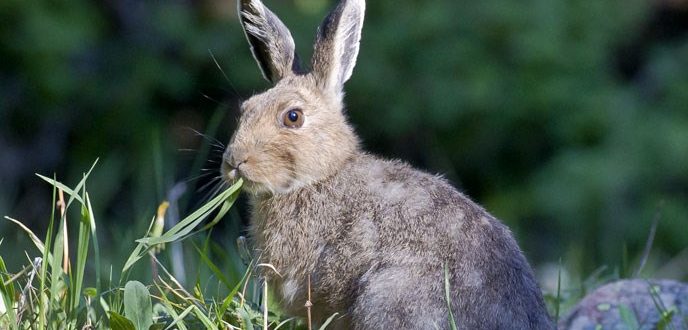Words of the Day: Hare and Hair
hare
hare / hâr
noun
an animal, of the genus Lepus, similar to a rabbit, that is larger; unlike a rabbit, it does not burrow and its young are born covered with fur
If you run after two hares, you will catch neither.
Japanese Proverb
Etymology
hare, from the Anglo-Saxon hara
_________________________________________________________________________________
hair
hair / hâr
noun
a threadlike strand that grows out of the skin of animals
A gentle hand may lead even an elephant by a single hair.
Iranian Proverb
a growth of such strands that covers the scalp of a human or makes the coat of an animal
Gray hair is a sign of age, not of wisdom.
Greek Proverb
filaments or other threadlike strands similar to hair growing from the outer layer of a plant or arthropod
Some plants defend themselves against bugs which can eat them; hairs trouble their advance, like obstacles on a cross-country race.
“Plant Hairs”, Jean-Marie Cavanihac, http://www.microscopy-uk.org.uk/mag/artmar00/hairs.html
fabric made from the fur of particular animals, such as horses, camels or alpacas
Sugar should be rubbed to a powder on a clean board, and sifted through a fine hair or lawn sieve.
From “The Cook and Housekeeper’s Complete and Universal Dictionary; Including a System of Modern Cookery, in all Its Various Branches,” by Mary Eaton, active 1823-49
an extremely small distance, space or degree
A hair divides what is false and true.
Omar Khayyam, 1048 – 1131
Etymology
hair, from the Anglo-Saxon haer






